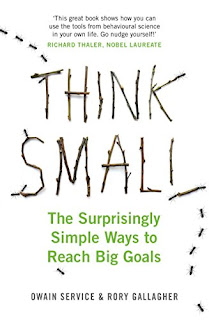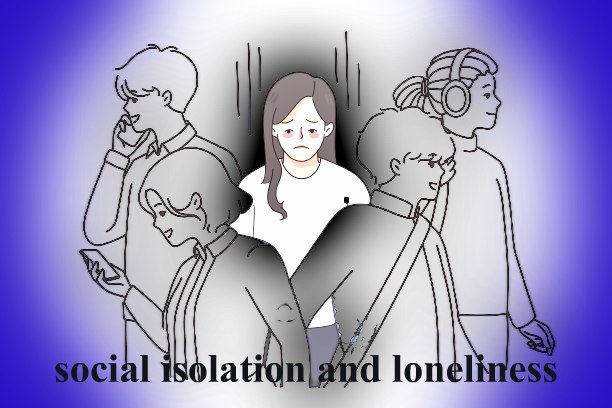Think Small Summary
Tag Line: Think Small gives the science-backed secrets to following through with your goals, identifying seven key components that will help you use your own human nature to your advantage for wild success like you’ve never had before.
You’ve all got big ambitions somewhere inside of you. But they’re probably buried under years of experience with trying to achieve them and failing. Why is it so hard to stick to your most massive goals?
You probably want to change, and it seems like you can. After all, there are all sorts of fancy diets and exercise programs, if improving your health is what you want. The problem with these is that they’re far too complicated. They kill the biggest determiner of success, which is the ability to stay consistent with small actions for a long time.
Doing so is only a simple matter of learning about behavioral science, which is just what Think Small: The Surprisingly Simple Ways to Reach Big Goals will teach you. Its seven highly-actionable steps will have you on the path to sticking with and achieving your goals in no time!
These are just 3 of the most important lessons I got from this book:
1. Only set one goal of the right kind, make it simple, and identify your targets and deadlines.
2. Ask others for help, team up with someone working on the same thing as you, or get a coach if you want to succeed.
3. You don’t have to stick with a routine that isn’t working, experiment with what works, and change it if necessary!
Your level of success in achieving goals is about to skyrocket, are you ready? Let’s dive right in!
Lesson 1: You need only one simple goal of the right nature and with the right targets and deadlines.
You’ve set goals in the past and made the mistake of thinking you’ll be happy once you accomplish them. But chances are good that it was actually the wrong goal in the first place and that it wouldn’t actually make you happier.
If we set our sights on material possessions, like a house or a nice car, we’re always going to end up less happy than if we set more meaningful goals. Research indicates that you’re going to be happier when you focus on experiences.
Here are the top five factors that make the most difference in our well-being, and which you should focus your goals around if you want to be happy:
• Curiosity
• Learning
• Generosity
• Activity
• Relationships
An analysis of people that got an extra $5,000 bonus is a good example of this in action. The data showed that whenever these people used the money on gifts or charitable contributions, they were happier than the group that only spent it on themselves.
It’s not just enough to set the right goals, however. You need to make sure that you can achieve it. The best way to do this is to set just one goal. You can set up a small number of categories to set a single goal in each, but limit it as much as possible.
Once you have your aim in mind, identify specific outcomes you want to achieve with concrete deadlines. “I want to lose 10 pounds by June 25” is much better than “I want to eat healthier,” for example.
Lesson 2: Success comes when you use the power of social connection, so get a teammate or coach to help you.
The best way to make a problem easier is to share the load with others. This is applicable in all aspects of life, especially in goal-setting. But you probably have a hard time asking for help.
However, the truth is, most people are a lot more willing to give help than you might initially believe. One study asked people how likely they thought it was that a stranger would lend their phone out to someone who needed it. While the participants predicted only 30%, the actual number is 50%!
It’s part of human nature to want to help others. Looking at the numbers above at how often strangers will help you, how much more likely are your friends and family to lend assistance?
When you add another person to your workout, diet plan, or any other goal you set, you significantly increase your chances for success.
A study had one group workout with a partner and another without. The companion for those who had one was just a virtual one through Skype, but their performance was better and longer than people who were only alone.
Other research indicates a similar effect with people who team up with a goal to save money. In these situations, savings rates improve by 200%!
So if you want to succeed, get a partner. I personally have a coach to help me stay accountable and I find that it makes a massive difference!
Lesson 3: Take away the fear of giving up on your routine by having a willingness to experiment.
One of the biggest problems with achieving goals is that we too often slip into the same patterns and are afraid to stop what’s not working.
If you’re not keeping up with your runs, for example, you probably need to try another time or a completely different method of exercise even!
Some methods will work well across the board. In the case of spelling bee participants, those that used focused practice, or studying slowly and alone, did the best in competitions.
There can be any number of best practice methods for whatever goal you’ve set. But you’ll never find the one that works for you without experimenting. You have to look at it like a scientist and not take failure personally.
In other words, it’s okay to give up on a method that isn’t working for you.
However, you have to take the leap and just begin if you want to find out what routine you do the best with.
The authors learned this when testing eight different versions of a website to get people to sign up for organ donation. It was only after the results came in that they discovered their initial guess of what would work actually didn’t.
Final Words
I liked Think Small so much that I had to purchase a physical copy that I could mark up and study more! These tips are super actionable and incredibly inspiring because of how small they are. I can’t say enough good about the ideas in this book and how much they’re going to help you finally achieve your goals!








